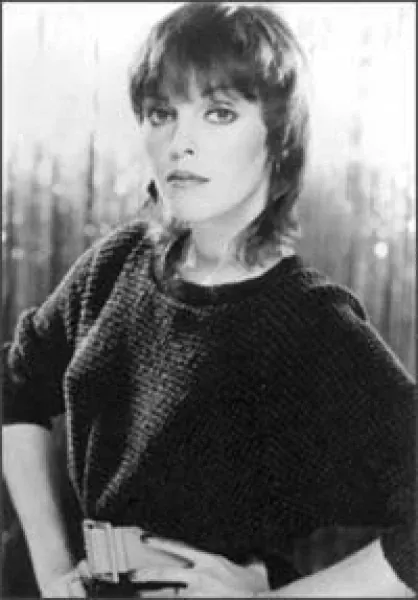
Pat Benatar
Top Pat Benatar albums
Top Pat Benatar lyrics
Pat Benatar biography
Pat Benatar's polished mainstream pop/rock made her one of the more popular female vocalists of the early '80s. Although she came on like an arena rocker with her power chords, tough s**uality, and powerful vocals, her music was straight pop/rock underneath all the bluster. Born Patricia Andrzej**ski on January 10, 1953, in Greenpoint, Brooklyn, the singer was raised in the nearby town of Lindenhurst on Long Island, NY. Benatar began singing regularly in the New York City area by the '70s, where she was discovered at the Catch a Rising Star club and signed by Chrysalis Records. Backed by a stellar band led by guitarist Neil Geraldo (who the singer would later marry) that provided the perfect accompaniment that was able to effortlessly alternate between rockers and ballads. Benatar quickly established herself as one of rock's top vocalists, scoring a hit right of the bat with her debut album, 1979's In the Heat of the Night, which spawned such radio favorites as "Heartbreaker" and "I Need a Lover" (the latter of which was written by a then-unknown John Mellencamp).br /br /Benatar's sophomore effort, 1980's Crimes of Pa**ion, more than delivered on the debut's promise and it's often considered to be the finest recording of her career. Spurred on by such cla**ic rock radio standards as "Hit Me With Your Best Shot," "Treat Me Right," and "You Better Run," the album was certified platinum shortly after its release and Benatar became a certified arena headliner in the U.S. Benatar also became one of the most-played artists during MTV's early days, received several Grammy Awards around this time, and continued to enjoy ma**ive hits and sold-out tours throughout the early to mid-'80s, including such albums as 1981's Precious Time, 1982's Get Nervous, 1983's Live from Earth, 1984's Tropico, 1985's Seven the Hard Way, and 1988's Wide Awake in Dreamland, plus the singles "Fire & Ice," "Promises in the Dark," "Shadows of the Night," "Love Is a Battlefield," "We Belong," and "Invincible." But by the end of the decade, it appeared as though Benatar had fallen of the face of the Earth as the hits seemed to dry up. br /br /Benatar opted to shift musical gears and issue an album of blues and R&B, 1991's True Love, which failed to return the singer back to the top of the charts. Benatar returned back to her patented arena rock sound with such further studio releases as 1993's Gravity's Rainbow and 1997's Innamorata (although the latter of which was largely acoustic-based) and while the albums didn't exactly measure up to her earlier releases, both were solid efforts. The late '90s saw a pair of live archival releases hit record store shelves, 1998's 8-15-80 and 1999's The King Biscuit Flower Hour Live, in addition to countless hits collections (although the best of the bunch proved to be 1989's Best Shots, which remains a steady seller to this day). The singer began touring again by the middle of the decade (after taking a five-year hiatus from the road), co-headlining shows with REO Speedwagon, Fleetwood Mac, the Steve Miller Band, and Styx. She also continued to dabble in acting, appearing in the ABC Afterschool Special Torn Between Two Fathers and on various sitcoms. In August 2003, Benatar returned to recording with Go (Vanguard), her first studio LP since 1997's Innamorata. The LP revisited the arena rock/MOR sound that had defined Benatar's career, and was accompanied by an extensive tour. ~ Greg Prato & Stephen Thomas Erlewine, All Music Guide
